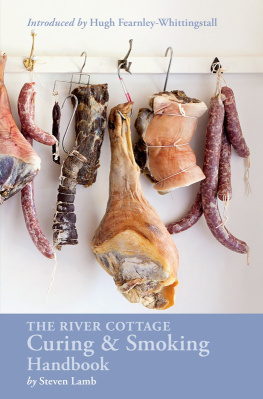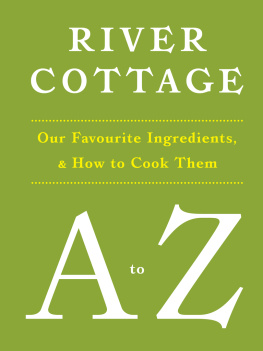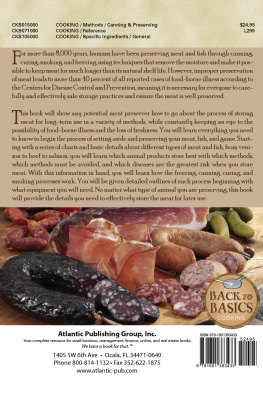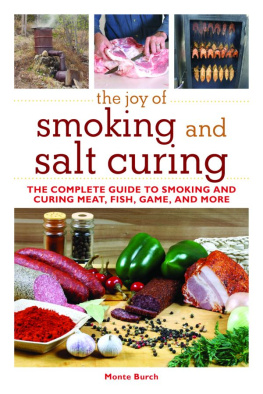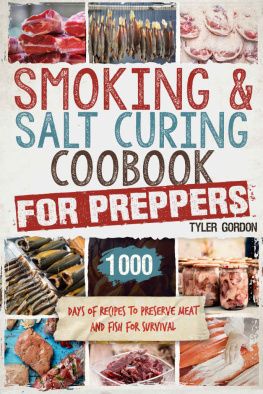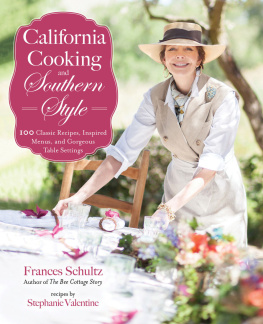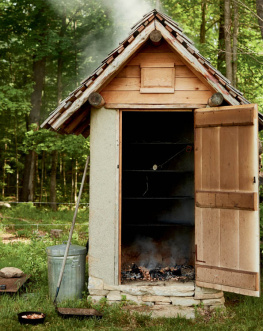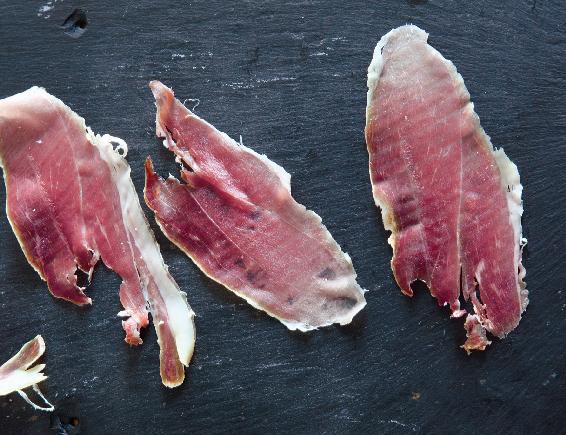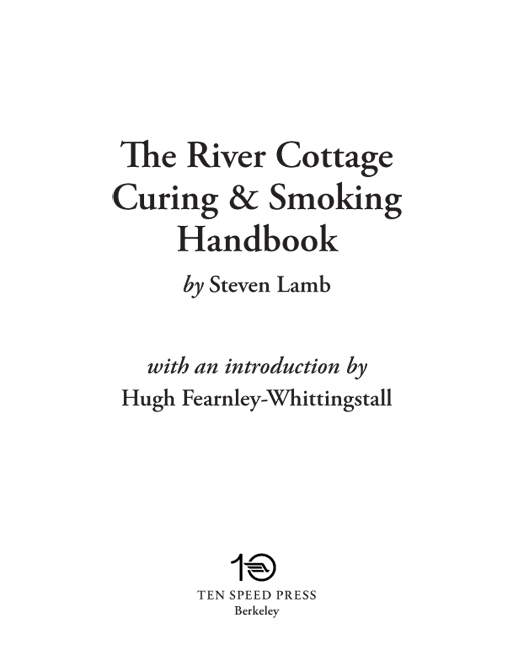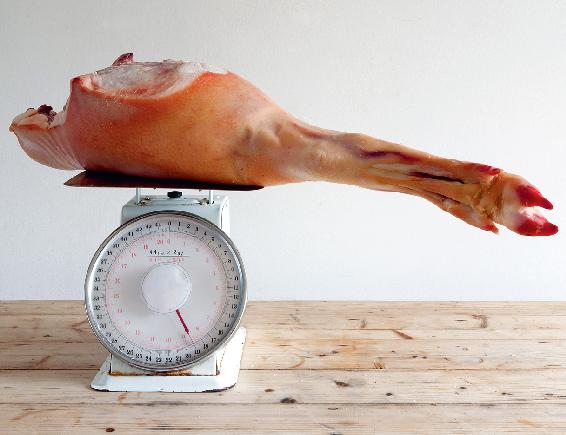Ever since I first embarked on my River Cottage adventures, almost two decades ago, Ive had the same aim: to bring myself and, with luck, those around me closer to the source of what we eat. That might mean something as simple as buying eggs from a neighbor rather than a supermarket, or learning how to cut up a whole chicken rather than buying it in expensive portions. But Ive derived huge pleasure and satisfaction from delving further into the realms of food production growing my own vegetables, for instance, and raising my own livestock.
Such projects, though hugely enjoyable, are undeniably challenging and involve some commitment. I know theyre not for everyone or at least, not yet. But if you would like to give a bit less space to the middlemen and regain control, at least to some extent, over what youre feeding your family, then there are other elements of food production you can take into your own hands with amazing ease. Home curing and smoking are among the most enticing.
These are techniques that take you one delicious step beyond your average recipe. They represent a deeper level of engagement with food than baking a cake or simmering a stew perhaps because they require the deployment of often ancient artisanal skills. These skills need not be daunting, but they do set you off on a new learning curve. The cook who makes his or her own bacon enters a different arena from the one who roasts his or her own pork. And, correspondingly, he or she reaches a new level of gratification often by no means instant, but always lasting.
Having said that, many of Stevens fantastic recipes are very straightforward and relatively quick. These dishes do a great deal to dismantle any mystique that surrounds home curing it is, at heart, a very simple procedure. Today we may think of these processes as being specialized and professional. But in times past everyone who raised livestock of any kind had a basic knowledge of how to use salt and smoke to help spread the goodness throughout the year. And everyone, whether small farmer or keen city cook, still can.
Of course, some of the items that Steven explores with such relish require more application than others. They are as much projects as recipes and may take half a day to put together and a long time to mature weeks, sometimes months. For some you will need to invest in special equipment (a robust mincer, for example, and a sausage stuffer) or large quantities of ingredients (such as big cuts of meat or whole sacks of salt).
But the rewards for your dedication, for any extra outlay or time, are immense. Curing meat or smoking fish doesnt only result in a delicious end product; the gift is much greater than that. These are processes that unlock the secrets of some of our best-loved, most useful ingredients. They give you the keys to the citadel of smoky, salty-sweet-savory tastiness: the hallowed place where bacon, air-dried ham, smoked salmon, and kippers dwell. That may sound a bit over the top, but I stand by it. Because, lets be honest, preserving and flavoring your own food in this way is pretty cool. If, like me, you love not just the finished dish but the process itself, then making a bacon sandwich with pork belly that youve cured yourself or whittling some wafer-thin slices from a leg of your very own air-dried ham represents a kind of culinary nirvana. It doesnt get much better.
These techniques are empowering. As Steven points out, once youve salted a whole piece of pork and successfully air-dried it in your own backyard, youll feel no curing challenge is out of reach. Youll realize that you have the capacity to produce wholly authentic, traditional charcuterie you are an artisan! And every time you follow one of the recipes in this book, your confidence will grow.
Youre in very good hands here. Steven Lamb is an absolute linchpin of the whole River Cottage operation and has been for a decade. He and I go back to the early days, when River Cottage HQ was a scrubbed-out cow barn with a secondhand kitchen rammed into a shed next door. Hes shared our learning curve from the beginning, assisting with our earliest efforts in curing and smoking and building his knowledge through experiment and experience. He is now our go-to guy for all things salty and smoky.
Stevens knowledge is as broad as it is deep. He currently guides River Cottage visitors through everything from building clay bread ovens to butchering pigs. But its as the teacher on our meat curing and smoking courses that he has achieved guru status, with both his River Cottage colleagues and the many hundreds he has taught over the years. Thats no surprise: quite apart from the fact that his coppa is, hands-down, the best Ive ever tasted, Steven is relentlessly passionate about this subject. He has a never-ending fascination for charcuterie and salumi , for cures and brines, for the subtle interplay of salt, smoke, and time. Its been a joy to see him pass this passion on to the people he teaches, and Im thrilled he is now doing the same for readers of this brilliant book.
So, set aside any thoughts you may have about successful curing being beyond you. If you have some salt, pepper, and sugar in your cupboard (or frankly, even just some salt!), youre ready to go. You can start experimenting now with a good strip of pork or plump piece of fish. Next time, perhaps youll add your own blend of herbs and spices to the cure, or youll press an old cookie tin into service as a hot smoker to enhance that cured flesh even further. With this twanging new string to your culinary bow, youre well on your way to being a more versatile, accomplished, and ultimately fulfilled cook.
Hugh Fearnley-Whittingstall, East Devon, January 2014
Real delicatessens are magical places. By real, I mean stocked with authentic, artisan-made products and independently run. For me, these places are the equivalent of the candy store to a young child or the church to a believer. I could spend an age looking at hams, sausages, and salami, sizing up the interplay of ingredients, craftsmanship, culture, and geography that goes to make each unique item. It is not unusual to find me staring wide-eyed in wonderment at an array of charcuterie, muttering under my breath about the possible methods used to get to the final results and mentally working backward to their original source. I have the incurable River Cottage affliction of wanting to know the whole story of an ingredient, all the ins and outs of it, and I will pepper with questions whoever is on the other side of the counter in my bid to unlock the secrets. It is fair to say that I have an unholy reverence for cured products.

